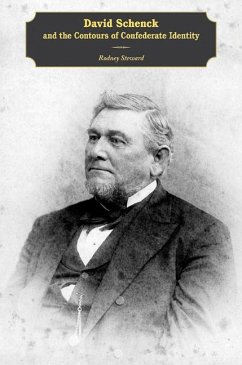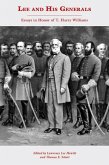A mid-level Confederate official and lawyer in secessionist North Carolina, David Schenck (1835-1902) penned extensive diaries that have long been a wellspring of information for historians. In the midst of the secession crisis, Schenck overcame long-established social barriers and reshaped antebellum notions of manhood, religion, and respectability into the image of a Confederate nationalist. He helped found the revolutionary States' Rights Party and relentlessly pursued his vision of an idealized Southern society even after the collapse of the Confederacy. In the first biography of this complicated figure, Rodney Steward opens a window into the heart and soul of the Confederate South's burgeoning professional middle class and reveals the complex set of desires, aspirations, and motivations that inspired men like Schenck to cast for themselves a Confederate identity that would endure the trials of war, the hardship of Reconstruction, and the birth of a New South. After secession, Schenck remained on the home front as a receiver under the Act of Sequestration, enriching himself on the confiscated property of those he accused of disloyalty. After the war, his position as a leader in the Ku Klux Klan and his resistance to Radical Reconstruction policies won him a seat on the superior court bench, but scathing newspaper articles about his past upended a bid for chief justice of the North Carolina Supreme Court, a compelling fall from grace that reveals much about the shifting currents in North Carolina society and politics in the years after Reconstruction. During the last twenty years of his life, spent in Greensboro, Schenck created the Guilford Battleground Company in an effort to redeem the honor of the Tar Heels who fought there and his own honor as well. >Rodney Steward is an assistant professor of history at the University of South Carolina, Salkehatchie. His works have appeared in the Virginia Magazine of History and Biography, Encyclopedia of North Carolina, and North Carolina Historical Review.








